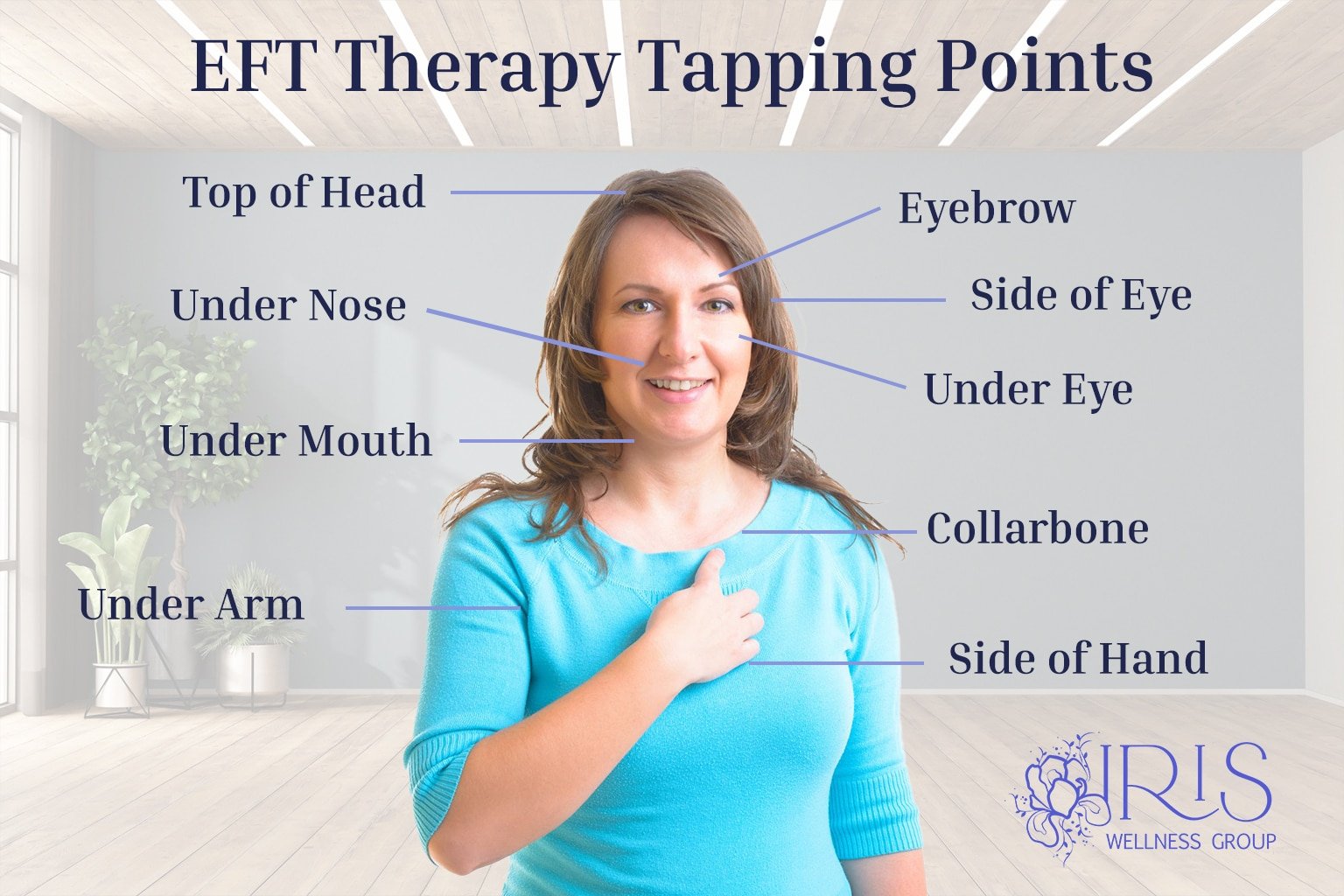Table of Contents
What is Emotion-Focused Therapy (EFT)?
Emotionally Focused Therapy (EFT) offers a short-term solution designed to rejuvenate the emotional and physical connection couples might lose due to disagreements and feelings of detachment. If EFT Therapy had a catchphrase, it would be “Hold me tight.”
Rooted in attachment theory, EFT believes in the transformative power of love and sees the bond between partners as pivotal for both individual and relationship growth. The therapy emphasizes that emotions aren’t just additions to our experiences but are central to shaping them. Expressing feelings of sadness or loneliness can reignite the warmth and understanding in a relationship. Once this connection is reestablished, couples find strength in their bond, helping them tackle life’s challenges together.
Established in the 1980s, EFT Therapy aligns with the science of adult attachment, deepening our understanding of personal well-being, love, and familial ties. This approach paints a picture of humans as inherently social creatures who naturally seek close bonds with others. EFT emphasizes the pivotal role of emotions and their regulation in both individual experiences and relationships.
While EFT Therapy is renowned for reviving relationships, it also addresses individual issues like depression, anxiety, and trauma. EFT has also been adapted for individuals (EFIT) and families (EFFT). This model blends experiential techniques reminiscent of Carl Rogers with relational systems strategies echoing Salvador Minuchin, aiming to reshape fundamental elements in oneself and in relationships.
When is EFT Therapy Used?
EFT can be a beacon of hope for couples who come to counseling feeling overwhelmed by emotional pain or convinced their relationship is beyond repair. Such couples often exhibit strong emotions like anger, fear, grief, and mistrust, reflecting their deep despair and anguish over the perceived loss of connection. These emotions can mask underlying feelings of vulnerability, such as fear, helplessness, and a sense of being unloved, which emerge when close bonds are broken.
EFT is also beneficial for those who struggle to express emotions, thinking it’s a sign of frailty. Conversely, it aids those who find it challenging to control their emotions, often stemming from deep-rooted fears of being left alone. In individual sessions, the therapist builds a trusting relationship with the client, creating a safe space to delve into and express emotions.
The power of EFT extends beyond just couples. It addresses emotional isolation, believed to be at the heart of many psychological challenges. Fears of separation and loneliness, which EFT tackles, are often linked to depression, anxiety, and traumatic experiences. Moreover, EFT can be instrumental in mending strained parent-child relationships, fortifying family bonds.
Understanding Techniques in Emotion-Focused Therapy (EFT)
In an EFT Therapy session, the journey of healing and self-discovery is a joint endeavor between you and your therapist. Think of it as two people traveling together, where both your insights and the therapist’s expertise play vital roles in reaching the destination.
Collaborative Process: Unlike some other therapy forms where the therapist takes the lead, EFT values your input just as much. It’s a dynamic dance where both of you are essential partners, building trust and understanding as you go.
Guided Self-Interpretation: Instead of prescribing meanings or emotions, your therapist helps you navigate and make sense of your feelings. They act as a gentle guide, assisting you in understanding and naming what you feel, ensuring that the insights come from within you.
Compassionate Listening: Your therapist approaches each session with an open heart, ensuring you always feel heard. This empathetic listening is key to building a safe space where you can freely express even your most vulnerable emotions.
Non-Judgmental Approach: Everyone has a unique emotional landscape. Recognizing this, your therapist refrains from any form of judgment, creating an environment where every emotion, whether positive or negative, is treated with respect and seen as a valid part of the human experience.
Reflective Questioning: Instead of direct inquiries, your therapist often uses reflective questions. This method encourages deeper self-exploration. By mirroring your emotions and experiences back to you through questions, they help you see things from new angles and perspectives.
EFT Therapy in Chattanooga, TN is not about finding quick fixes but about delving deep into one’s emotional world. With the techniques mentioned above, it aids individuals in understanding, accepting, and, eventually, reshaping their emotional responses to create a more fulfilling life.
What to Expect in an EFT Therapy Session
When you begin Emotionally Focused Therapy, you’re embarking on a journey that typically spans between eight to 20 weekly sessions. Here’s a look into the process:
Getting Started: The therapist will first understand your relationship’s history. By watching how you both interact and asking you to highlight key concerns, they’ll pinpoint underlying fears and insecurities that might be disrupting the relationship.
Building Emotional Stability: The initial sessions primarily focus on calming heightened emotions. If there’s tension and turmoil outside the therapy sessions, this stage helps partners navigate it better. By broadening emotional responses, couples learn to recognize and meet each other’s needs more effectively.
Deepening Emotional Bonds: This phase is all about reigniting that emotional closeness. The aim? To create a bond so strong that both partners feel safe enough to share their deepest vulnerabilities. In doing so, they become each other’s safe haven, fostering individual and collective growth.
Active Participation: An EFT therapist doesn’t merely watch from the sidelines. They actively guide the process, helping couples see behaviors like anger or withdrawal not as flaws, but as misguided attempts to connect. This perspective shift allows couples to express their profound feelings and needs more openly.
Solidifying Progress: The concluding sessions are about cementing the progress made. With the relationship’s foundation strengthened, couples tackle past or ongoing issues, but with a fresh approach. Now, in challenging times, they lean into each other for support, understanding the genuine emotional needs that previously led to misunderstandings.
EFT is about moving from disconnection to a deeper, more understanding bond, with the therapist guiding the way.
How EFT Therapy Works
At the heart of Emotion-Focused Therapy lies the belief that our emotions and relationships shape our well-being. This therapy draws inspiration from attachment theory, emphasizing the vital role human connections play in offering comfort, safety, and fostering personal growth.
Think of these connections in three ways:
- Current Relationships: These might be with partners or close ones where the bond might feel strained or distant.
- Past Influences: We all carry memories and mental images of significant people from our past. These ‘mental blueprints’ often influence our current relationships.
- Inner Self: This is our internal relationship, how we perceive and relate to different parts of ourselves.
It’s essential to understand that our innate longing for others is hardwired into our brains. This connection is what nurtures our sense of security, propelling us to explore, take risks, and grow. Without it, we often find ourselves on edge, wary of dangers, risk-averse, and feeling powerless. EFT Therapy recognizes these feelings as potential triggers for many mental health challenges.
Whether it’s mending bonds with real-life partners in couples therapy or working through memories and internal connections in individual sessions, EFT Therapy delves deep into our emotional bonds. Through the therapy, individuals realize how their patterns of behavior, especially the negative ones, often stem from deep-seated fears of losing those they hold dear.
Guided by the therapist, individuals learn to voice these fears, understand the underlying needs these fears might be hiding, and, rather than pulling away, use these insights to draw closer to their loved ones. With strengthened bonds, they are better equipped to tackle life’s challenges hand in hand.
The Benefits of Emotion-Focused Therapy on Mental Health
Emotion-Focused Therapy has a wide range of applications for improving mental health:
- Depression: Living with depression often means avoiding certain daily situations, which can further dampen your mood and pull you into a deeper emotional rut. While EFT isn’t a magic cure for depression, it offers tools and strategies that empower you to face these situations head-on, breaking the cycle and managing symptoms more effectively.
- Anxiety: For those grappling with intense anxiety, the overwhelming emotions can feel paralyzing. It becomes challenging to distinguish and manage your feelings, making daily tasks daunting. EFT teaches you to discern between emotions that serve you and those that don’t, enabling better emotional self-control.
Beyond these, EFT is also beneficial for:
- Healing from childhood trauma, be it abuse or neglect.
- Addressing eating disorders.
- Tackling personality disorders.
- Improving interpersonal relationships and resolving conflicts.
- Strengthening bonds between couples, especially those facing relationship hurdles.
In essence, Emotion-Focused Therapy offers tools and insights to navigate complex emotional landscapes, leading to improved well-being and healthier relationships.
The Benefits of Emotion-Focused Therapy on Addiction Treatment
EFT Therapy has emerged as a powerful tool for those battling addiction, especially for individuals grappling with negative self-perceptions or strained relationships.
Often, when addiction starts to strain relationships, families or partners might consider therapy. EFT provides a comforting environment where everyone can discuss the challenges posed by addiction and its ripple effect on the family.
For individual therapy, EFT shifts its focus from the person’s external relationships to their inner relationship. Many battling addiction suffer from low self-esteem, feelings of inadequacy, or a barrage of negative thoughts. These negative emotions might drive them towards substance abuse as a way to escape or suppress these feelings.
Consistent EFT Therapy sessions can guide individuals to better understand and accept their emotions and self-worth. The therapy delves deep into past traumas, feelings of abandonment, harmful attachments, and experiences of rejection, all of which can stir internal conflict and escalate substance misuse.
Given its emphasis on reshaping thought processes and mastering emotional control, EFT Therapy proves beneficial for those juggling both mental health challenges and addiction. Therapists might integrate EFT Therapy with other longer-term therapeutic strategies, such as conventional talk therapy or Cognitive Behavioral Therapy (CBT), for a comprehensive treatment approach.
Types of EFT Therapy
Emotionally Focused Couples Therapy or EFT for Couples (EFCT)
EFCT, rooted in attachment science from the 1980s, is a short-term therapeutic approach, usually spanning 8 to 20 sessions. It combines experiential methods to reshape emotional experiences and systemic strategies to restructure interactions. EFCT boasts a rich history of research showcasing its long-term effectiveness. The approach serves a diverse range of couples worldwide, from different cultures, backgrounds, and orientations.
Primary Goals of EFCT:
- Reframe and broaden key emotional reactions, transforming self-awareness.
- Introduce a positive evolution in partners’ interactions and habitual patterns.
- Strengthen a secure bond between partners.
Emotionally Focused Individual Therapy or EFT for Individuals (EFIT)
EFIT leverages attachment science principles for individual therapy, emphasizing the significance of emotions. Emotions are pivotal in shaping our internal experiences, motivations, and relationships. EFIT intersects experiential strategies, focused on internal experiences, with systemic ones, centered on engagement patterns with others.
Primary Goals of EFIT:
- Deliver corrective experiences that reshape perceptions of oneself and others, ensuring lasting change.
- Facilitate transformative moments, harmoniously balancing vulnerabilities.
- Empower clients to foster secure attachments, marked by openness, responsiveness, and deep engagement.
- Assist clients in developing a coherent and capable self-image, enabling them to tackle life’s existential challenges.
Emotionally Focused Family Therapy or EFT for Families (EFFT)
EFFT utilizes EFT principles to nurture connections and resilience in family dynamics. Its core aim is to rebuild secure family patterns, mending emotional bonds, and ensuring effective attachment and caregiving responses.
EFFT therapy centers on stabilizing negative family interaction patterns, reshaping parent-child relationships, and reinforcing the sense of security achieved through these renewed connections. Using attachment science, therapists guide families towards patterns marked by parental availability, responsiveness, and clear attachment communications. The focus is to address obstacles in parental caregiving responses and comprehend children’s behaviors from an attachment perspective. The EFFT approach also encompasses understanding and addressing generational impacts on attachment patterns.
Primary Goals of EFFT:
- Recognize and amplify unacknowledged emotions linked to the family’s negative patterns.
- Recontextualize family distress and children’s issues within the framework of relational barriers exacerbating this distress.
- Enhance awareness and understanding of underlying caregiving intentions and suppressed attachment-related needs.
- Encourage the expression of unsatisfied attachment needs and cultivate effective caregiving responses.
Choosing the Right EFT Therapist for You
Seeking an EFT therapist? Make sure they’re licensed with added EFT training. An adept EFT therapist doesn’t just listen; they truly understand all relationship angles and can identify hidden conflict sources. Their knack for positively reframing issues helps couples communicate and understand each other better.
Experience is golden. Opt for someone well-versed in EFT, especially for issues like yours.
Remember, comfort is key. Find someone you can openly communicate with. Consider asking them:
- How often have you tackled issues like mine?
- Is my situation suitable for EFT?
- Can you briefly explain EFT and its process?
- What’s the typical treatment duration?
- How do you track progress?
Discover Healing Through Emotion-Focused Therapy in Chattanooga, TN
Iris Wellness Group is proud to offer Emotion-Focused Therapy in Chattanooga, TN. Let us guide you towards understanding and healing with this transformative approach. If you’re seeking deep emotional insight and a path to lasting change, look no further. Join us at Iris Wellness Group and embrace the power of EFT therapy in Chattanooga, TN. Your journey to emotional well-being starts here! Call Iris Wellness Group today and embrace EFT Therapy tailored just for you.














